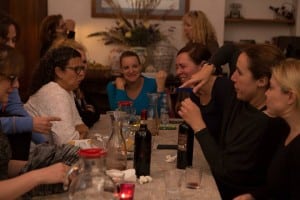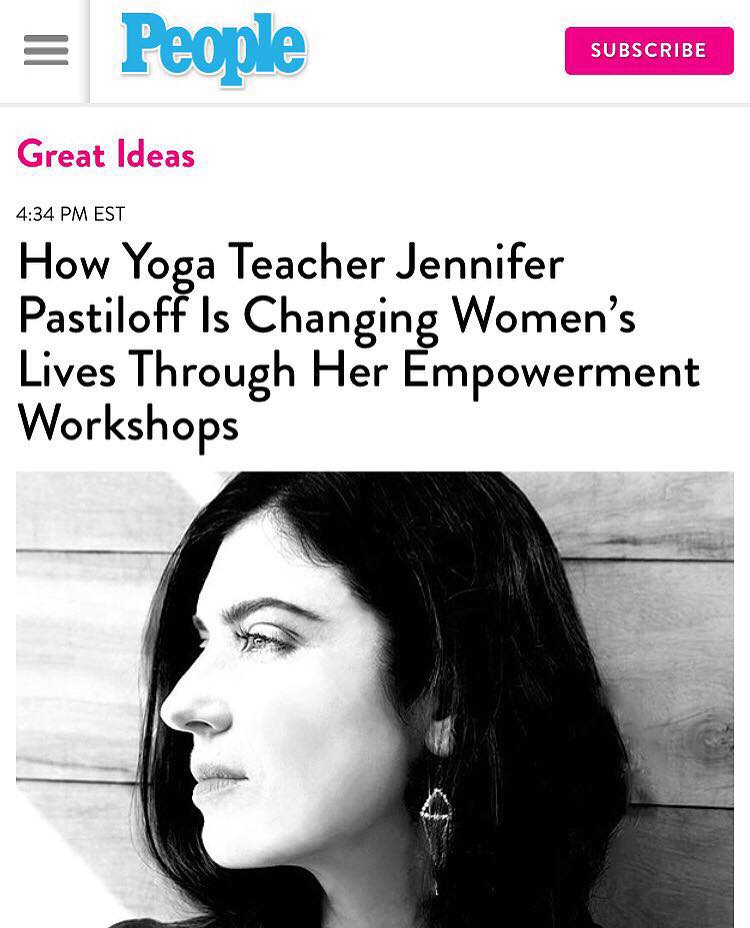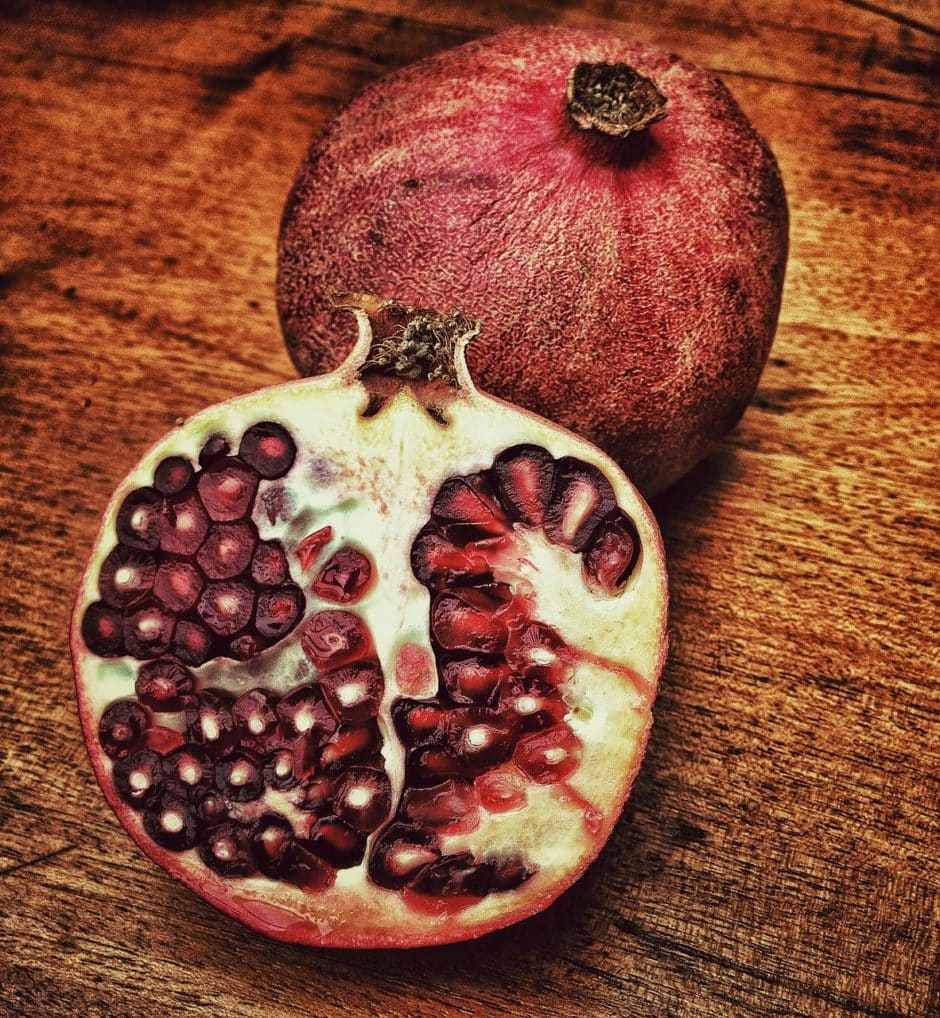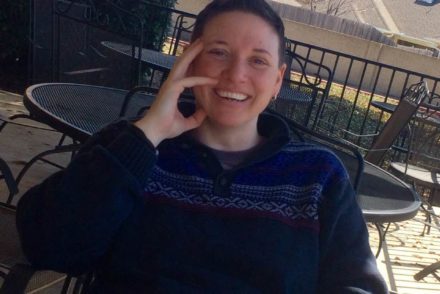By E Alice Isak
Shame blocks our mouths like the fat tongue of an unwelcome lover.
A questing tongue that corks our voice in the back of our throat, our own tongue pinned beneath,
as shame’s hot sour breath fills our nostrils and its sweaty body strains against us, pressing us tight into the corner of a darkened room.
Shame is what we submit to, what we open ourselves to, when we do not know how to believe that we deserve anything else.
After my divorce, I began a long and agonizing journey to reclaim my own sexuality. Seemingly overnight, I had developed both an overwhelming urge to masturbate—and an inability to orgasm without sobbing hysterically. Every orgasm cracked open a vast well of grief in my chest, a pain too profound and inchoate to put into words, then or now.
I would cry until I choked on sorrow.
The experience felt terrifying and ludicrous and shameful. I tried talking to my therapist about how silly yet frightening I found the whole thing. I tried blogging about talking to my therapist, titling the post: “In which I Talk Shamelessly About Masturbation.”
Rereading that story today, I am reminded how ‘shameless’ is not the same as ‘shame-free.’
The small but enduring popularity of that post in the two years since I wrote it leaves me both heartbroken and heart-warmed. The readers who find my piece are asking questions about how to talk to their own therapists about masturbation—and how to do so without shame. It craters me to witness this widespread pain from our culture’s pitting of shame against pleasure, of pleasure against speech. Yet I also see hope in people’s ongoing quest for help, for answers, for ways to speak ourselves past the hurt and back into our bodies.
I wish I had found clear answers then.
I wish I had new answers to provide today.
But I have instead what I have always had: my own story—and a fanged determination to tell it, shame-be-damned. Through sharing our stories, however imperfect or unfinished, I believe we can find new strength and grace to ease the burdens each of us carries.
My telling begins with the body.
* * *
When I started dating my now-ex-husband, it was the first serious relationship I had been in since college and the first relationship I had had with a man in over a decade. And our lovemaking at first felt good. Unprecedentedly good, given my limited range of comparison points.
“When we’re in bed together, I am myself still all the way to my feet!” I told him once, almost clapping with excitement. “Even down though my feet, I can feel myself loving you.”
He gave me an odd, uncomprehending look, before continuing with whatever he was doing. Apparently, absence from one’s own body during sex was not an experience he recognized. Whereas I couldn’t remember anything but. Sex, as far back as I could think, was about my head directing my limbs and body how to move, what to touch, when to touch it.
Of course, by the time our marriage ended, I’d’ve been hard pressed to find myself even in my head.
After my masturbation torment began and touching my body anywhere felt like warfare, I thought back to this moment, to this awareness of love even into my feet. I’ve studied social narratives about shame: women and shame, bodies and shame, sex and shame. But starting from a theoretical lens—and then forcing my experiences to fit into that model—wasn’t helping. I decided, tentatively, nervously, to start from my experiences instead…and let that building narrative take me where it would.
Could I suture myself into my present body by going back to the beginning? Could I find a time when being not-dissociated wasn’t so difficult, or so rare, and follow it forward?
* * *
〈 4 〉
I am 4 and entranced by my own vulva. The funny folds and flaps of it, the inner skin damp and so unlike the rest of my body. Awake early and sitting in my bed, I pull aside the crotch of my baby doll pajamas and bend myself in half to look, tugging the lips wide apart so it opens like the mouth of a puppet.
I am careful not to be caught by any adults when I do this. It’s my special secret, and I don’t want to share.
* * *
I have never been remotely adept at the whole “tell your partner what feels good” aspect to sex, responding to even direct questions with a gaped-open mouth and silence. So it was no small thing when I trusted my new beau enough to ask the thing that had troubled me for weeks.
“How do you know…”
My voice trailed off in embarrassment.
Pause, deep breath, stare at my hands to finish the question: “…during sex, how do you know…when to change positions?”
I did not yet understand, while the ex and I were still together, how abusers will ingratiate themselves in the beginning of a relationship. How they learn their lovers’ vulnerabilities in order to exploit and manipulate them later. What felt like intimacy to me was a study in target practice to him, even if neither of us realized it. Still-unhealed wounds and naivety? Chum in the ocean.
I asked that day because I felt genuinely puzzled—and also genuinely concerned about getting something wrong.
How can I follow the rules if he won’t tell me what they are?
* * *
〈 12 〉
I am 12 and teaching myself how to masturbate based on a description of “the female orgasm” I find in Girls and Sex, a cheap paperback with a garish fuchsia cover that I think my parents bought for me. (Since they keep it on a shelf in my father’s office, though, I can’t be sure.) Each time I want to reference it, I must sneak through their bedroom, then past their bathroom and their closets, just to reach the office. Finally arrived, I sit cross-legged in the corner and read the book there, unwilling to risk smuggling the slim volume back to my own room.
After each masturbatory attempt—nights when I pull the sheet over my head after lights-out and flick insistently at my clit until giving up in frustration or boredom, or with the occasional suspicion that this time maybe I really got it right!—I consult the book again.
The first few stages of increased heart rate and deepened breathing I master quickly, though the climax itself—with its paroxysm of pleasurable release—proves elusive, as do the concluding warm flush and the potential for drowsiness, as this practicing usually leaves me feeling more wound up than tired. (I am also slightly concerned about the may moan loudly, or make other spontaneous noises step in the process.)
While I don’t remember when my right hand and I achieve our first orgasmic paroxysm together, by the time I discover my older brother’s hidden stash of Playboys and Penthouse Forums a couple years later, my skills will be reliably in place. I will have learned all I can from the bright pink book, and my brother’s titty magazines will prove easier to filch.
* * *
Romantic comedies have always been my favorite form of (admittedly problematic) entertainment, but after my divorce I couldn’t stand them. The smiling heroines all looked like victims-in-waiting; the eager heroes all looked like their mouths held wolf’s teeth dripping blood.
I didn’t want to watch porn either, as accompaniment to rubbing myself off into grief—and not my own thoughts, sweet mercy give me anything but what is in my head—but porn would do, if I could find nothing else sufficiently hard and graphic and unkind.
My favorite non-porn go-to was Lust, Caution, a film set during the Japanese occupation of Shanghai in which a young woman resistance fighter becomes mistress to a violent, sexually-abusive government official in order to spy on him. These details were mere background to the scene I watched compulsively: She clearly hates him. Hates herself for fucking him. Has decided to get what release she can from the only fuck available to her.
Her expression when she finally comes? It comforted me to see that look on someone else’s face.
* * *
〈 13 〉
I am 13 the first time one of my friends mentions masturbation. A slumber party gaggle already in our sleeping bags, we are defying parental instructions to “Be quiet! And GO TO SLEEP!” with whispered games of truth-telling: about boys and crushes and the intricate 8th-grade ballet of guessing who likes who and who might like who back…
Out of the dark, a halting question. “What do you guys think. About…like sex, but…I mean, like sex, but…with yourself…?”
The party ends abruptly as we all go suddenly silent, a roomful of girls each pretending to have already drifted off to sleep.
* * *
During a seminar on the psychology of sexuality I took long ago in grad school, the professor started one class by having us brainstorm a list of all the slang we knew for masturbation. He had run the same exercise once before, as part of a large, undergraduate lecture series, and the results he got from us—a small, unflappable cohort of graduate students who were all queer dykes, gay men, and/or Foucault scholars—caught him off-guard.
“Oh. Huh. You came up with as many examples for female masturbation as for male.” Nonplussed, he turned back from the blackboard to face our smirks. “That’s…very unusual.”
I’m not sure what good knowing words is, if you can’t apply them properly.
In the months leading up to when my orgasms turned against me, I had been learning just how many words I did even not know that I did not know. How “intimate partner violence” included relationships like my marriage. How “emotional abuse” applied to my marriage as well. And I learned for myself how “rape” was the proper word for all those moments I never talked about: the nights during my 18th summer when a boy I once knew climbed a tree and clambered through my bedroom window.
If you would have power over a thing, first you must know how to call it by its true name.
* * *
〈 14 〉
I am 14 when I fall in love with Molly Ringwald. I thrill as her Samantha leans in over the birthday cake to kiss Jake Ryan at the end of Sixteen Candles, just as the following year I will thrill at seeing Molly’s Claire press her lips to John Bender’s in their post-detention clench at the end of The Breakfast Club. And the year after that, at Andie Walsh racing to kiss Blane in the parking lot at the end of Pretty in Pink. These final kisses transport me to a place beyond.
Everything else is forgiven or forgotten: Jake’s girlfriend, blotto drunk and discarded into the care of a randy stranger. Bender’s shaming attack on Claire or how he forced his head between her unsuspecting thighs. Blane’s cowardly abandonment of Andie right before prom. In the final moments of the romcom, only the lovers’ kiss matters.
Many more years later, I will read a critical analysis of romantic comedies that describes final kiss scenes as the genre’s “metaphorically displaced orgasm.”
And I will remember my teenaged self, sitting silently in the dark watching Molly Ringwald, twelve feet tall on the movie screen, and think: nothing metaphoric or out-of-place about it.
Nothing at all.
* * *
It took the entire fall and winter of 2013-14 just to reassemble my memories of a boy who climbed a tree, of a window, and of what came next. I was grateful for the details I remembered, and more grateful still for those I did not.
One detail I had never forgotten were the bruises. Small contusions arranged in rough semi-circles along the inside and back of each thigh. I hadn’t even noticed them for at least a week, until one afternoon I spotted strange livid marks just below the cutoff edges of my shorts. A long, dumb moment of staring before my brain registered what I was looking at. Handprints.
* * *
〈 15 〉
I am 15 when I get separate “sex talks” from each of my parents.
“A flash of thigh,” my father tells me, “just a flash of thigh, and—boys can’t help it, not even men, not even me—we don’t want to, but…”
He stops himself, then tries again. “Look. Someday you’ll be sitting in a car with a boy and he’ll want to go further than you’re comfortable with. So here’s what you do. Say to him, ‘why don’t you go behind that tree over there and jack off. Then you can come back and we’ll have a nice conversation.’
“One of two things will happen. Either he’ll be so shocked that he’ll stop immediately. Or he’ll take you up on the suggestion, and feel much better for it.” My father smiles at me, giving an emphatic nod.
My mother too wants me to understand the nature of men.
“Some men,” she tells me, “important men, with important jobs—with stressful jobs—need a physical release at the end of the day. Or else they can’t sleep.” This release doesn’t always have to be sex, she explains; nice men will also accept backrubs. And giving backrubs is better, because you can still read your book.
Later, I will laugh with my friends at dad’s invocation of “a flash of thigh” and his equally archaic belief that even mild vulgarity in a girl’s mouth works like a bucket of ice water dumped across a boy’s lap. I do not mention watching mom massage my father’s back every night at bedtime.
* * *
I sat very still and placed my hand against one inner thigh. I stared. I stretched my fingers slightly so that each tip reached one of the five bruise-dark circles.
what if there are no trees what if there are no trees what if there are no trees
I looked at my hand against a thigh that was not my thigh, that had been marked as not my thigh, I can’t remember what a thigh is but this thigh is not mine.
what if there has never been a tree and the men are not nice
I sat still and silent on the couch for a very long time, staring.
* * *
〈 18 〉
I am 18 and making out with my boyfriend in a dorm room on the final night of our freshman year. For the first time ever, I am fully naked and unselfconsciously present with another human being, drawing in and giving back pleasure without effort. He slides his fingers between the slick lips of my cunt and my hips rise, tense with the delight of an almost-orgasm that hovers a moment, before lapsing back into itself without completion. I feel all over delicious.
The next morning before he goes, my boyfriend will make a joke about leaving money on the nightstand. A cruel quip born out of his own embarrassment, probably, that displaces his discomfort onto me, though I cannot recognize this at the time. I will spend the next 45 minutes standing in a scalding shower scrubbing at myself, as if a washcloth could remove the shame I feel rising from my pores. The stench of my previous night’s pleasure. When I finally shut off the water, the skin across my chest and thighs is raw and flecked with blood.
Six days later, I will be raped for the first time.
Three days after that, I will receive a letter from my college boyfriend, breaking up with me.
I am 18, the first and last time I am fully and unselfconsciously present in my own sexual body. Now, even alone in a room, I feel shame leering at me from the doorway and windows.
* * *
By the end of last year, I had exorcised the sobbing grief released by my orgasms, and the active warring with myself subsided. I can masturbate again now, if I wish, without calamity—and I occasionally do: to relieve stress, to combat insomnia. It is a mechanical exercise and not one I engage in for enjoyment.
Sex therapists sometimes counsel struggling couples to focus not on orgasms or intercourse, but on reconnecting first through simple, nonsexual touch. I am trying my own version of this. Outside of bathing or dressing, beyond the routine mechanics of any embodied life, I touch my hands to my body. I stroke my arms, trace my fingers along my sternum, run my hands gently across my thighs. Like a novice at mediation, I continue the touch as long as I can. As long as I can stand it.
I am up to almost five minutes, on a good day.
A few weeks ago, I began watching romcoms again. Everything is as I remember: the comedy-of-errors plotlines, the problematic tropes, the 20-something actors playing impossibly beautiful high school teens. I love it all.
The first time I watched one through to the final scene—where the beautiful boy reaches out his hand to cup the face of the beautiful (once she ditched her glasses) girl, who stares mesmerized at his lips as they come ever closer to hers, all the while music swells to announce the on-screen swelling—when they finally began to kiss, I began to cry. Soft, quiet weeping that lasted through the final roll of the credits. It’s progress; I’ll take it.
Yesterday I noticed that Pretty in Pink is available on my movie-streaming service. I may watch it later this week. I’ll pour myself a glass of wine, sit on the couch with my feet up, open Netflix…
And chill.
E Alice Isak is an educator, social justice activist, and feminist with loud opinions on most topics. Her passions include dismantling rape culture, storytelling as a tool in trauma-recovery, and attempting to master a decent Italian buttercream; and her work has been published by The Body Is Not An Apology and The Good Men Project, among others. She can be found online at her blog, Coffee and a Blank Page (https://coffeeandablankpage.com/ ).

Join Jen Pastiloff in Tuscany Sep 17-24, 2016. There are 2 spaces left. This will be her only international retreat in 2016 and is her favorite retreat of the year. Email barbara@jenniferpastiloff.com asap. More info here. Must email first to sign up.

Join Jen Pastiloff at her Manifestation Workshop: On Being Human in London Oct 1st and Dallas Oct 22. Click the links above to book. No yoga experience needed- just be a human being! Bring a journal and a sense of humor. See why People Magazine did a whole feature on Jen.

Check out Jen in People Magazine!





No Comments